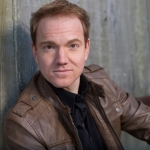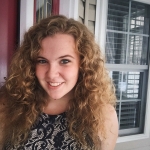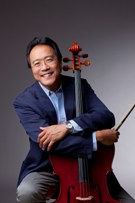
Estee Dechtman
Step into the Fear
Posted by Feb 08, 2018

Estee Dechtman
Above the door of my theatre teacher’s classroom is the saying, “Step into the fear.” This saying has become a motivation of mine during this turbulent environment where support for arts education is more important than ever before. As a theatre student, history and human behavior jump off the page and come alive, forming an ensemble of different perspectives from a wide range of characters. These characters help me better understand the evolving world in which I live and inspire me to make a difference. Theatre has taught me to speak up, and this skill is not lost on me as an advocate. As I learn more and more about the world through plays, art, and music, I find myself with a greater efficacy and understanding of the value of arts advocacy.
Read More
































 Yo-Yo Ma (Photo by Todd Rosenberg)
Yo-Yo Ma (Photo by Todd Rosenberg)




